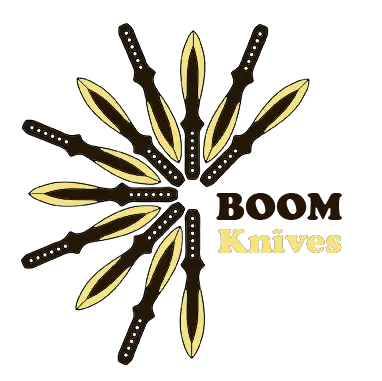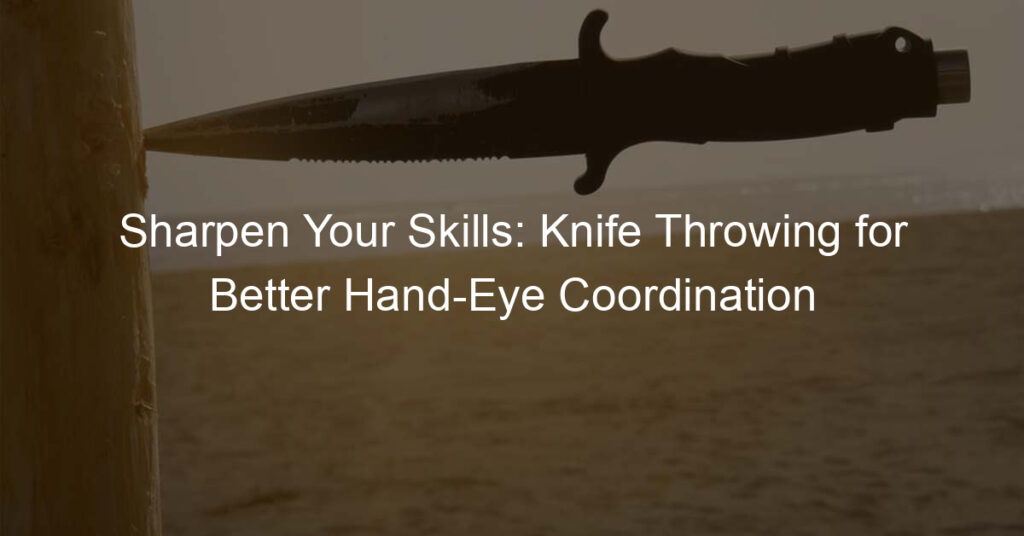Introduction to Zen Knife Throwing Techniques
An ancient martial art that requires focus, precision, and calmness. When combined with the principles of Zen, it becomes a practice of mindfulness, concentration, and self-discipline. In this article, we will explore the concept of Zen, introduce you to the art of knife throwing, and discuss how these two elements can be fused together to create a unique and powerful practice.
-
Understanding the Concept of Zen
A school of Buddhism that emphasizes meditation and mindfulness. It is a way of life that encourages individuals to live in the present moment and to find peace within themselves. Zen is not just about sitting quietly; it is about finding tranquility in every action, whether it’s drinking tea, painting, or even throwing a knife. Learn more about Zen here.
-
Introduction to Knife Throwing
A martial art that has been practiced for centuries. It requires a great deal of focus, precision, and control. The thrower must be able to accurately gauge the distance to the target, the weight of the knife, and the force required to throw it. It’s not just about physical strength; it’s also about mental focus. Read more about knife throwing here.
-
The Fusion of Zen and Knife Throwing
Are combined, the result is a practice that is both physically challenging and spiritually fulfilling. The thrower must be fully present in the moment, focusing all their attention on the knife and the target. Each throw becomes a meditation, a moment of Zen. This fusion of Zen and knife throwing can help individuals develop greater focus, self-discipline, and inner peace.
Knife Throwing as a Zen Practice
The Philosophy of Zen in Knife Throwing
-
- Concept of mindfulness in knife throwing
Being mindful means being fully present and engaged in the moment. In knife throwing, mindfulness is crucial. You must be aware of every detail: the weight of the knife, the distance to the target, the movement of your arm. This level of awareness can help you achieve precision and consistency in your throws.
-
- Balance and focus in Zen knife throwing
You must maintain a stable stance and concentrate on your target to throw effectively. It’s a practice that requires both physical balance and mental focus. Over time, this can lead to a state of Zen, where the mind is clear and calm.
-
- Case study: Famous Zen knife throwers
One famous Zen knife thrower is Masaaki Hatsumi, a renowned martial artist from Japan. He has mastered the art of knife throwing and incorporates Zen philosophy into his practice. His throws are not just about strength or speed, but also about mindfulness, balance, and focus. His example shows how Zen can elevate the art of knife throwing.
Spiritual Aspects of Knife Throwing
-
- Connection between the thrower and the knife
The thrower must understand the knife, its weight, its balance, and its trajectory. This understanding goes beyond mere technical knowledge. It is a deep, spiritual connection that allows the thrower to become one with the knife. This unity enables the thrower to make accurate and precise throws.
-
- Understanding the spiritual journey in knife throwing
Knife throwing is not just about hitting the target. It is also about the journey that the thrower embarks on. This journey is spiritual in nature. It involves self-discovery, self-improvement, and self-mastery. The thrower learns to control their mind, their body, and their emotions. They learn to focus, to be patient, and to be persistent. This spiritual journey is what makes knife throwing a Zen practice.
The spiritual aspects of knife throwing are just as important as the physical aspects. The connection between the thrower and the knife, and the spiritual journey that the thrower embarks on, are what make knife throwing a truly unique and rewarding experience.
Benefits of Knife Throwing
Knife Throwing for Stress Relief
-
- How knife throwing helps in stress management
Requires concentration, precision, and physical exertion. These elements combined can provide a form of ‘active meditation’, helping to clear the mind and relieve stress. The act of throwing the knife and hitting the target can provide a sense of accomplishment and control, which can counter feelings of stress and anxiety.
-
- Case study: Individuals who found stress relief through knife throwing
Consider the case of John, a 35-year-old office worker. John struggled with high levels of stress from his demanding job. He discovered knife throwing through a local club and began practicing regularly. He found that the focus required for knife throwing allowed him to forget about his work stress for a while. Over time, he reported a significant decrease in his overall stress levels.
It’s important to note that knife throwing should be practiced safely and responsibly, ideally under the guidance of a trained professional. If practiced correctly, it can be a unique and effective method for stress relief.
Physical and Mental Benefits of Knife Throwing
- Improvement of Physical Strength and Coordination
As you practice this art, you’ll find that your arm and shoulder muscles become stronger. This is because each throw engages these muscles, leading to improved strength over time.
Moreover, knife throwing also enhances your hand-eye coordination. It requires you to aim accurately and throw the knife at the right moment. This constant practice of aligning your vision with your movements can significantly improve your coordination skills. According to a Wikipedia article, improved motor coordination can lead to better performance in various daily activities.
- Enhancement of Mental Focus and Concentration
Knife throwing isn’t just about physical strength and coordination; it’s also a mental game. It requires a high level of focus and concentration. Each throw demands your full attention, from aiming at the target to releasing the knife at the right moment.
Practicing this art can help you develop a sharper focus and improve your concentration skills. This can be beneficial not just in knife throwing, but also in other areas of life. For instance, better concentration can lead to improved productivity at work or school. A Wikipedia article explains how enhanced concentration can lead to better cognitive performance.
Zen and Martial Arts
Understanding Zen in Martial Arts
-
- Role of Zen in various martial arts
In Judo, for instance, Zen helps practitioners to stay calm and focused during a match. It teaches them to react instinctively, without thinking, to their opponent’s moves. In Kendo, Zen is used to achieve a state of mind called ‘Mushin’ (no mind), where the mind is free from thoughts, emotions, and distractions. This allows the practitioner to react quickly and accurately to their opponent’s attacks. In Aikido, Zen is used to cultivate harmony and balance, both physically and mentally. It helps practitioners to blend with and redirect the force of an attack, rather than opposing it directly.
-
- Similarities and differences between Zen in knife throwing and other martial arts
It requires a high level of concentration, precision, and calmness, all of which are cultivated through Zen. However, there are some differences too. While most martial arts are about self-defense or combat, knife throwing is often practiced for sport or entertainment. The goal is not to defeat an opponent, but to hit a target with accuracy and consistency. This requires a slightly different application of Zen. Instead of preparing for an opponent’s attacks, knife throwers use Zen to clear their mind, focus on the target, and execute their throw with perfect timing and technique.
Zen is an integral part of martial arts. It not only enhances the physical skills but also cultivates mental discipline and spiritual growth. Whether it’s Judo, Kendo, Aikido, or knife throwing, the principles of Zen can help practitioners to excel in their art and live a more balanced and fulfilling life.
Conclusion: Mastering the Art of Zen Knife Throwing
- Key takeaways on Zen knife throwing techniques
Throughout this article, we’ve discussed the importance of balance, precision, and concentration in Zen knife throwing. We’ve learned that the knife is not just a weapon, but a tool for meditation and self-improvement. The art of Zen knife throwing encourages us to be present in the moment, to focus on the task at hand, and to let go of distractions. It’s a practice that requires patience, discipline, and a deep understanding of the self.
The goal is not to hit the target every time, but to achieve a state of Zen where the mind and body work in harmony. As the famous Zen saying goes, “It’s not about the destination, it’s about the journey.”
- Steps to start your journey in Zen knife throwing
- Find a mentor: Look for a local martial arts school that offers Zen knife throwing classes. Learning from an experienced instructor is invaluable.
- Invest in the right equipment: Purchase a set of throwing knives designed for beginners. They should be well-balanced and comfortable to hold.
- Practice regularly: Like any skill, Zen knife throwing requires regular practice. Set aside time each day to hone your skills.
- Embrace the Zen philosophy: Zen is not just a technique, but a way of life. Incorporate its principles into your daily routine.
Mastering the art of Zen knife throwing is a journey of self-discovery and personal growth. It’s a practice that can bring balance and tranquility to your life.







